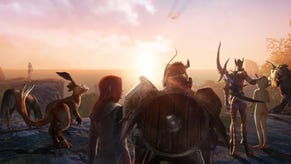Nintendo disappointed by Super Mario Run revenues
However, company says it still prefers pay-once model to free-to-play formulas like the one used in Fire Emblem Heroes
While most mobile game developers would be happy to have their games perform as well as Super Mario Run, Nintendo isn't most mobile developers. With the game making its debut on Android this week, Nintendo president Tatsumi Kimishima was quoted in the Nikkei Asia Review saying that revenue from the iOS edition "did not meet our expectations."
Much of that is likely down to the game's business model. Where typical mobile free-to-play games are designed to allow users to spend unlimited amounts of money, Super Mario Run had a single $10 in-app purchase to unlock the bulk of the game's content, and no opportunity to spend more.
Since the launch of Super Mario Run, Nintendo has also released Fire Emblem Heroes, a mobile adaptation of its strategy RPG series that uses a more standard free-to-play model where players can pay money for randomized in-game items or characters. As of this writing, Fire Emblem Heroes is 48 on the US App Store top grossing charts, while Super Mario Run is 117.
Despite the relative performance of the two games (especially given the relative popularity of their brands), Nintendo isn't fully embracing the free-to-play model. As a senior company official told Nikkei, "Heroes is an outlier. We honestly prefer the Super Mario Run model."
Next up on Nintendo's mobile slate is an Animal Crossing game. Like Super Mario Run and Fire Emblem Heroes, the game will be free-to-start, but it's unclear exactly what form its monetization will take.








